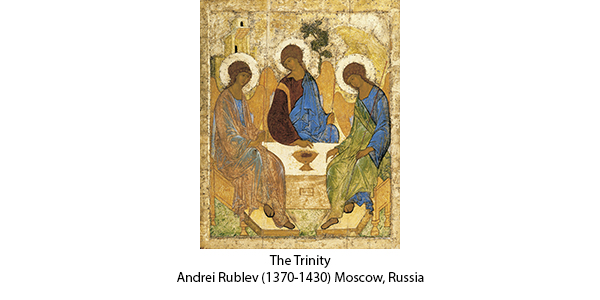February 7, 2015
A Prayer and Fasting Devotional
In a November 2014 op-ed titled “On Thanksgiving Day, Remember Fast Day,” Dean Grodzins, visiting scholar at the Massachusetts Historical Society and a research associate at Harvard Business School, traced the little-known history of Fast Day in the American historical memory. Grodzins writes:
“Around 1740 . . . the New England colonies (except for Rhode Island, which always went its own way) began observing regular annual fasts and thanksgivings, corresponding to the local agricultural year. Fast Day was held typically in April; farmers were in effect asking for God’s forgiveness and blessing before they planted. Thanksgiving was held in November, to show God gratitude for the harvest. Only at this time did Thanksgiving come to be associated with a feast.”
“Around 1740 . . . the New England colonies (except for Rhode Island, which always went its own way) began observing regular annual fasts and thanksgivings, corresponding to the local agricultural year. Fast Day was held typically in April; farmers were in effect asking for God’s forgiveness and blessing before they planted. Thanksgiving was held in November, to show God gratitude for the harvest. Only at this time did Thanksgiving come to be associated with a feast.”
February 6, 2015
A Prayer and Fasting Devotional
When was the last time you couldn’t fall asleep because your mind was racing, and you couldn’t slow down your thoughts? Or you woke up in the middle of the night, shaken out of sleep because of something which had not gone right that day or because of some worry for the upcoming day? I often wonder, when all I need is to slow down and rest, why am I awake with my mind running so fast?
When this happens, one trick my father taught me as a kid is to quote, in order, the Psalms (or, let’s be honest, maybe just remember a snippet from some of them) until you fall asleep. Granted, this is a lot easier to do if you grew up in a church tradition that sings the Psalms regularly. Nonetheless, the point of this trick is rest comes from being in God’s presence through His word and prayer.
When this happens, one trick my father taught me as a kid is to quote, in order, the Psalms (or, let’s be honest, maybe just remember a snippet from some of them) until you fall asleep. Granted, this is a lot easier to do if you grew up in a church tradition that sings the Psalms regularly. Nonetheless, the point of this trick is rest comes from being in God’s presence through His word and prayer.
February 5, 2015
A Prayer and Fasting Devotional
“The Son of Man came not to be served but to serve, and to give his life as a ransom for many” - Matthew 20:28.
This passage from the Gospel of Matthew has always struck me. If Jesus came not to be served, then why do we call ourselves His servants? He came to serve us! This can be quite perplexing. If Jesus didn’t come so we could serve Him, then why did He come? If Christianity was like any other theism, serving (read: owing) would be the proper logical response. But being the God of the Bible’s image bearers, humanity's existence is not merely one of subjection to a “higher power.” Jesus came to show us what it actually means to be human.
This passage from the Gospel of Matthew has always struck me. If Jesus came not to be served, then why do we call ourselves His servants? He came to serve us! This can be quite perplexing. If Jesus didn’t come so we could serve Him, then why did He come? If Christianity was like any other theism, serving (read: owing) would be the proper logical response. But being the God of the Bible’s image bearers, humanity's existence is not merely one of subjection to a “higher power.” Jesus came to show us what it actually means to be human.
February 4, 2015
A Prayer and Fasting Devotional
The Parable of the Wedding Feast
Now he told a parable to those who were invited, when he noticed how they chose the places of honor, saying to them, “When you are invited by someone to a wedding feast, do not sit down in a place of honor, lest someone more distinguished than you be invited by him, and he who invited you both will come and say to you, ‘Give your place to this person,’ and then you will begin with shame to take the lowest place. But when you are invited, go and sit in the lowest place, so that when your host comes he may say to you, ‘Friend, move up higher.’ Then you will be honored in the presence of all who sit at table with you. For everyone who exalts himself will be humbled, and he who humbles himself will be exalted.” - Luke 14:7-11
Now he told a parable to those who were invited, when he noticed how they chose the places of honor, saying to them, “When you are invited by someone to a wedding feast, do not sit down in a place of honor, lest someone more distinguished than you be invited by him, and he who invited you both will come and say to you, ‘Give your place to this person,’ and then you will begin with shame to take the lowest place. But when you are invited, go and sit in the lowest place, so that when your host comes he may say to you, ‘Friend, move up higher.’ Then you will be honored in the presence of all who sit at table with you. For everyone who exalts himself will be humbled, and he who humbles himself will be exalted.” - Luke 14:7-11
February 3, 2015
A Prayer and Fasting Devotional
“Be still, and know that I am God.
I will be exalted among the nations,
I will be exalted in the earth!” - Psalm 46:10
For quite some time, I wrongly believed this verse was a call to quiet my life and soul, to reject the world’s busyness, so that I may more fully know God. And, perhaps, there is a great deal of truth in such a premise, but as my seminary professor always liked to say, “right doctrine/belief, wrong text.” As I began to read the context around the verse, the entirety of Psalm 46, I noticed these poetic verses speak out of a troubled, perilous, and war-torn world, a tumultuous world created both by the evils of the earth and those of humanity. Verse 10, then, is not so much about quieting our inner-soul, as it is a call to place our confidence in the Lord amidst a dark and oftentimes terrifying world, to stop tarrying about like the rest of the fear-plagued world, and trust that all of history is moving toward God’s intended end, namely an entire created order singing His praise and honor (v. 10b).
I will be exalted among the nations,
I will be exalted in the earth!” - Psalm 46:10
For quite some time, I wrongly believed this verse was a call to quiet my life and soul, to reject the world’s busyness, so that I may more fully know God. And, perhaps, there is a great deal of truth in such a premise, but as my seminary professor always liked to say, “right doctrine/belief, wrong text.” As I began to read the context around the verse, the entirety of Psalm 46, I noticed these poetic verses speak out of a troubled, perilous, and war-torn world, a tumultuous world created both by the evils of the earth and those of humanity. Verse 10, then, is not so much about quieting our inner-soul, as it is a call to place our confidence in the Lord amidst a dark and oftentimes terrifying world, to stop tarrying about like the rest of the fear-plagued world, and trust that all of history is moving toward God’s intended end, namely an entire created order singing His praise and honor (v. 10b).
February 2, 2015
A Prayer and Fasting Devotional
“When one of those who reclined at table with him heard these things, he said to him, “Blessed is everyone who will eat bread in the kingdom of God!” But he said to him, “A man once gave a great banquet and invited many. And at the time for the banquet he sent his servant to say to those who had been invited, ‘Come, for everything is now ready.’ But they all alike began to make excuses. The first said to him, ‘I have bought a field, and I must go out and see it. Please have me excused.’ And another said, ‘I have bought five yoke of oxen, and I go to examine them. Please have me excused.’ And another said, ‘I have married a wife, and therefore I cannot come.’” – Luke 14:15-20, ESV
February 1, 2015
A Prayer and Fasting Devotional
On a recent Sunday after church, when I picked up my two-year-old son from children’s ministry, I asked the volunteer how he’d behaved that day. To my surprise, she told me that he’d behaved well (he’s been going through a tantrum stage). She warned me that his pants were a little loose and had fallen down once or twice. Bored by our conversation, he wriggled out of my arms to return to play with the other children. As he ran away to play, I noticed his loose pants slide down to his ankles, revealing his chubby legs and diaper. Some of the kids pointed and laughed at his “nakedness.” Oblivious to their taunting, he continued to happily play with a toy train that was nearby. As he shouted “choo choo!” to no one in particular, I thought to myself, my son is literally “naked and unashamed.” He had no idea that he was supposed to be embarrassed because he was exposed in public. Naked and unashamed. In our appearance-obsessed culture, we rarely use these two words to describe ourselves. We may use one or the other, but rarely both.
January 31, 2015
A Prayer and Fasting Devotional
“Unless the Lord builds the house,
those who build it labor in vain.
Unless the Lord watches over the city,
the watchman stays awake in vain.
It is in vain that you rise up early
and go late to rest,
eating the bread of anxious toil;
for he gives to his beloved sleep.”
-- Psalm 127:1-2
those who build it labor in vain.
Unless the Lord watches over the city,
the watchman stays awake in vain.
It is in vain that you rise up early
and go late to rest,
eating the bread of anxious toil;
for he gives to his beloved sleep.”
-- Psalm 127:1-2
January 30, 2015
A Prayer and Fasting Devotional
In his Grace in Practice: A Theology of Everyday Life (Eerdmans, 2007), Paul F. M. Zahl writes, “The more dire the circumstance or checkmate is, the more heartfelt and spontaneous the prayer for help is.” I love the image of a checkmate because it describes well the human condition: defeated and helpless apart from God’s grace. Due to the invasion of evil we find in ourselves and our world, we are utterly impotent to change, improve, or save ourselves. We are surrounded by reckless rooks and cruel queens that render our personal kingships hopelessly conquered.
Checkmate.
While this may sound pessimistic, it’s the only thing that makes sense of “heartfelt and spontaneous” prayer, isn’t it? To the degree we are optimistic about our ability to save ourselves and change the world, our fervency in prayer will disappear. But to the degree that we see ourselves accurately, as helpless, we will pray to God for help. And perhaps this is why energetic and sincere prayer is so rarely found today: we don’t know that we’re in checkmate.
Checkmate.
While this may sound pessimistic, it’s the only thing that makes sense of “heartfelt and spontaneous” prayer, isn’t it? To the degree we are optimistic about our ability to save ourselves and change the world, our fervency in prayer will disappear. But to the degree that we see ourselves accurately, as helpless, we will pray to God for help. And perhaps this is why energetic and sincere prayer is so rarely found today: we don’t know that we’re in checkmate.
January 28, 2015
A Prayer and Fasting Devotional
And there was a prophetess, Anna, the daughter of Phanuel, of the tribe of Asher. She was advanced in years, having lived with her husband seven years from when she was a virgin, and then as a widow until she was eighty-four. She did not depart from the temple, worshiping with fasting and prayer night and day. And coming up at that very hour she began to give thanks to God and to speak of him to all who were waiting for the redemption of Jerusalem. –Luke 2:36-38
Anna’s life didn’t turn out the way she’d planned. As a young bride, Anna envisioned herself like other women in Jerusalem who spent their days and nights attending their families. But after her husband’s untimely death, Anna never remarried. One can only imagine the combined agonies of widowhood and old age in first-century Jerusalem. But what did Anna do with the time God gave her? Was she to live out her days as an object of pity?
Anna’s life didn’t turn out the way she’d planned. As a young bride, Anna envisioned herself like other women in Jerusalem who spent their days and nights attending their families. But after her husband’s untimely death, Anna never remarried. One can only imagine the combined agonies of widowhood and old age in first-century Jerusalem. But what did Anna do with the time God gave her? Was she to live out her days as an object of pity?
January 26, 2015
A Prayer and Fasting Devotional
“Do you think that I cannot appeal to my Father, and he will at once send me more than twelve legions of angels? But how then should the scriptures be fulfilled, that it must be so.” - Matthew 26:47-56
The deed is done, and, as Jesus had just predicted to His close friends, the hour is now at hand when He is betrayed into the hands of sinners. More specifically, these “sinners” consist of Judas (famously known as The Betrayer), the chief priests and elders, and a large crowd of temple guards and police with swords and clubs at their sides, as if ready for a fight. At first there is no fight. Jesus’ arrest is quick and easy, that is, until Peter gets valiant and cuts off the ear of one of the High Priest’s slaves with his own sword. Surprisingly, all hell does not break loose like you would expect in a scene like this. Instead of using this distraction to slip away, Jesus immediately mitigates the situation and avoids more bloodshed by telling Peter to put away his sword. You see, Peter still does not quite get who Jesus is and the authority He has. Peter may have thought this was a test, a perfect opportunity to show his loyalty to Jesus, when, in fact, Peter’s actions are getting in the way of Jesus’ necessary destiny.
The deed is done, and, as Jesus had just predicted to His close friends, the hour is now at hand when He is betrayed into the hands of sinners. More specifically, these “sinners” consist of Judas (famously known as The Betrayer), the chief priests and elders, and a large crowd of temple guards and police with swords and clubs at their sides, as if ready for a fight. At first there is no fight. Jesus’ arrest is quick and easy, that is, until Peter gets valiant and cuts off the ear of one of the High Priest’s slaves with his own sword. Surprisingly, all hell does not break loose like you would expect in a scene like this. Instead of using this distraction to slip away, Jesus immediately mitigates the situation and avoids more bloodshed by telling Peter to put away his sword. You see, Peter still does not quite get who Jesus is and the authority He has. Peter may have thought this was a test, a perfect opportunity to show his loyalty to Jesus, when, in fact, Peter’s actions are getting in the way of Jesus’ necessary destiny.
January 25, 2015
A Prayer and Fasting Devotional
Jesus replied, “You do not realize now what I am doing, but later you will understand.”
Do you recognize the context in which Jesus made this observation (and promise!)? It’s a verse that I never really noticed before, as it lies inconspicuously in a passage filled with attention-getting drama.
Do you recognize the context in which Jesus made this observation (and promise!)? It’s a verse that I never really noticed before, as it lies inconspicuously in a passage filled with attention-getting drama.
January 24, 2015
A Prayer and Fasting Devotional
No one born of God makes a practice of sinning, for God's seed abides in him, and he cannot keep on sinning because he has been born of God. By this it is evident who are the children of God, and who are the children of the devil: whoever does not practice righteousness is not of God, nor is the one who does not love his brother. - 1 John 3:9-10
When I read this passage, I often wonder whether Christians in the U.S. take it seriously especially as it relates to Biblical commands about sex. The data is not encouraging. A 2012 survey by The National Campaign to Prevent Teen and Unplanned Pregnancy found that 80% of young evangelicals (18-29) who are unmarried are having sex. Other surveys come to similar conclusions. The data can be really discouraging.
When I read this passage, I often wonder whether Christians in the U.S. take it seriously especially as it relates to Biblical commands about sex. The data is not encouraging. A 2012 survey by The National Campaign to Prevent Teen and Unplanned Pregnancy found that 80% of young evangelicals (18-29) who are unmarried are having sex. Other surveys come to similar conclusions. The data can be really discouraging.
January 22, 2015
A Prayer and Fasting Devotional
“To be sure, food keeps us alive, but that is only its smallest and most temporary work. Its eternal purpose is to furnish our sensibilities against the day when we shall sit down at the heavenly banquet and see how gracious the Lord is. Nourishment is necessary only for a while; what we shall need forever is taste.”
When I came across this thought in Robert Farrar Capan’s book The Supper of the Lamb, I found it arresting. I don’t think I had ever considered what the “eternal purpose” of food might be, nor even that it has one. In my experience, food is always temporary. Mere hours after a delicious meal, I’m back at the fridge for more.
When I came across this thought in Robert Farrar Capan’s book The Supper of the Lamb, I found it arresting. I don’t think I had ever considered what the “eternal purpose” of food might be, nor even that it has one. In my experience, food is always temporary. Mere hours after a delicious meal, I’m back at the fridge for more.
January 21, 2015
A Prayer and Fasting Devotional
Dear Friend in Christ,
As we continue our season of fasting together, I want to remind us of God’s purpose for us through fasting. Listen to Jesus’ words in Mark 7:15: “Nothing that goes into a person from outside can defile him, but the things that come out of a person are what defile him. If anyone has an ear to hear, he should listen!” In verses 20-23, Jesus continues to explain this mystery to His disciples by saying: “…What comes out of a person - that defiles him. For from within, out of people’s hearts, come evil thoughts, sexual immoralities, thefts, murders, adulteries, greed, evil actions, deceit, lewdness, stinginess, blasphemy, pride and foolishness. All these evil things come from within and defile a person.” In our text today, the core problem of defilement is defined as what resides in the heart (things that come out), not things going into a person. Throughout Scripture, the heart refers to the center of one’s being, including the mind, emotions, and will.
As we continue our season of fasting together, I want to remind us of God’s purpose for us through fasting. Listen to Jesus’ words in Mark 7:15: “Nothing that goes into a person from outside can defile him, but the things that come out of a person are what defile him. If anyone has an ear to hear, he should listen!” In verses 20-23, Jesus continues to explain this mystery to His disciples by saying: “…What comes out of a person - that defiles him. For from within, out of people’s hearts, come evil thoughts, sexual immoralities, thefts, murders, adulteries, greed, evil actions, deceit, lewdness, stinginess, blasphemy, pride and foolishness. All these evil things come from within and defile a person.” In our text today, the core problem of defilement is defined as what resides in the heart (things that come out), not things going into a person. Throughout Scripture, the heart refers to the center of one’s being, including the mind, emotions, and will.
January 20, 2015
A Prayer and Fasting Devotional
While most people completely understand what it means to make adjustments for personal change, make proposals for widespread change, or boycott and strike for social change, few appreciate the value a sacrifice to God has for guaranteed change. Yet, fasting and praying has been and continues to be the most effective way to demonstrate a confidence and consciousness in the presence and power of God, which always yields results.
A decision to sacrifice food or pleasure in order to get God’s attention is a demonstration of faith and assurance in the God who sees, hears, and answers the cry of His people. I’m reminded of Cornelius in the book of Acts, chapter 10. He was a devout centurion of the Italian regiment who always prayed and gave generous alms to the poor; yet, after a time of fasting, God instructed Peter to share the Gospel with him, so that, in the end, Cornelius’ whole family and friends heard the Gospel, received the Holy Spirit, and were baptized! Theirs was an unlikely meeting that ushered change for and within both men.
A decision to sacrifice food or pleasure in order to get God’s attention is a demonstration of faith and assurance in the God who sees, hears, and answers the cry of His people. I’m reminded of Cornelius in the book of Acts, chapter 10. He was a devout centurion of the Italian regiment who always prayed and gave generous alms to the poor; yet, after a time of fasting, God instructed Peter to share the Gospel with him, so that, in the end, Cornelius’ whole family and friends heard the Gospel, received the Holy Spirit, and were baptized! Theirs was an unlikely meeting that ushered change for and within both men.
January 19, 2015
A Prayer and Fasting Devotional
"(3) For I was envious of the arrogant when I saw the prosperity of the wicked...(13) All in vain have I kept my heart clean...(16,17) But when I thought how to understand this, it seemed to me a wearisome task, until I went into the sanctuary of God; then I discerned their end...(19) how they are destroyed in a moment...(20) like a dream when one awakes...(28) for me it is good to be near God."
- Psalm 73:3, 16, 17, 19, 20, 28You may or may not (for plenty of good reasons) remember the movie Requiem for a Dream that was based on the novel with the same title. It's a controversial and brutally honest story about human ambition and addictions. The story follows multiple characters and their personal pursuit of their hope-filled dreams. Tragically, their means to make their dreams reality slowly imprison them, and their dreams are put to death by the reality of their disillusioned lives. This gritty and depressing story ends with each character defeated by their dreams and left helpless by their reality.
January 18, 2015
A Prayer and Fasting Devotional
My brothers, show no partiality as you hold the faith in our Lord Jesus Christ, the Lord of glory. For if a man wearing a gold ring and fine clothing comes into your assembly, and a poor man in shabby clothing also comes in, and if you pay attention to the one who wears the fine clothing and say, “You sit here in a good place,” while you say to the poor man, “You stand over there,” or, “Sit down at my feet,” have you not then made distinctions among yourselves and become judges with evil thoughts? – James 2:1-4
January 17, 2015
A Prayer and Fasting Devotional

Now the word of the Lord came to Jonah the son of Amittai, saying, “Arise, go to Nineveh, that great city, and call out against it, for their evil has come up before me.” - Jonah 1: 1-2
This passage shows the twinning seen throughout scripture of God’s righteousness and compassion.
- God acknowledges Ninevah’s dignity (“that great city”) and seeks its repentance.
- God sees Ninevah’s great evil and is angered and saddened by it.
January 16, 2015
A Prayer and Fasting Devotional
Even within the evangelical community, there has been debate over the last decade on the crucial biblical teaching of justification. Luther called justification “the doctrine upon which the church stands or falls,” so we want to make sure that we put up fences to protect this precious truth.
What is so precious about justification? We could recite a long list to answer this question, but I want to focus in on one particular reason why this truth is precious, namely, it is the spark which ignites the fire of love for Jesus in the hearts of sinners like you and me. Let me show you this from Luke 7:36 – 50.
What is so precious about justification? We could recite a long list to answer this question, but I want to focus in on one particular reason why this truth is precious, namely, it is the spark which ignites the fire of love for Jesus in the hearts of sinners like you and me. Let me show you this from Luke 7:36 – 50.












